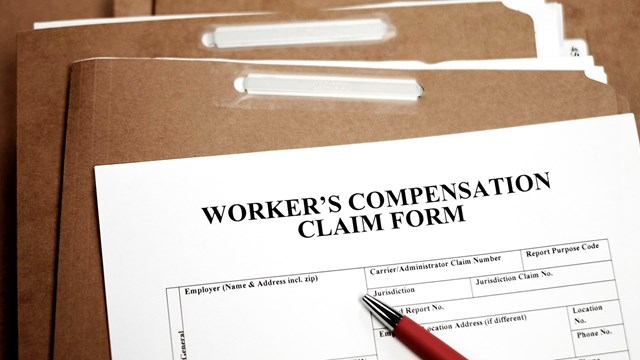Sometimes our neighbors can be our best friends. They’re the people we turn to for emergency babysitting help, or for a cup of sugar, or for that friendly chat in the elevator. Sometimes, though, the people we live in close proximity to can be the ones we have the most friction with. And when conflict erupts between residents, it’s often up to the building’s board members or management to set things straight and smooth things over.
When Trouble Starts
So what rubs residents the wrong way about each other? Coming in at number one on the list of conflict causers is noise. “Noise is a huge issue,” says attorney Adam Leitman Bailey of the Manhattan-based Adam Leitman Bailey, PC law firm. “With people living in such small spaces together, unless you have your own floor, it can cause problems.”
Attorney Steve Sladkus of Wolf Haldenstein Adler Freeman & Herz, based in Manhattan, agrees. “If you hear noise every day, it can drive you crazy. People get testy because their home is the largest investment they have. Their home is their castle.”
Odors such as cigarette smoke or cooking smells also are common causes of disagreement, says Sladkus. Other problem areas include alterations and construction, which can lead to noise, dirt and dust, says attorney David Berkey of the Manhattan-based firm Gallet Dreyer & Berkey LLP. “Misuse of terraces” also can raise hackles, especially when “someone sends a cigarette over the top or drops a drink over the edge to the other apartments below,” Berkey says.
No matter what the issue, though, most problems lead back to one central infraction. “Disrespect,” Bailey says. “Small things like not recycling or scratching a wall or stealing someone’s newspaper can lead to bigger things like fights and lawsuits.”
That’s why, when trouble starts, it’s in the best interest of everyone involved to find a quick and equitable solution. “When there’s a problem, when the board is notified, there should be some sort of preliminary investigation,” Sladkus says. In co-ops, there exists a warranty of habitability, which says that if there’s a problem with someone’s apartment, the co-op corporation has a duty to do something about it.
No warranty exists in a condo, but in recent years, the objectionable conduct provision in most condos’ proprietary leases allows the board to remove a resident who is deemed incorrigible. “It’s been in leases for decades but has been invoked only fairly recently,” says Berkey.
Getting to the Bottom
The first step in finding a resolution to a conflict involves finding out exactly what happened or is happening, in the case of an ongoing problem. “The board will ask the manager to investigate and find out the type and frequency of the problem, then contact the person alleged to be causing the problem,” says Sladkus. “In a non-accusatory way, they should try to get the facts from the person upstairs (if it’s a noise issue, for example).”
That non-accusatory approach can be the key to keeping a problem from escalating. “Naturally someone’s going to be defensive,” Sladkus adds. “For dispute resolution purposes, you want to inquire without any tone or aggression. Let them know you just need to know their side of the story.”
Bailey agrees. “Knock on the door, bring donuts or coffee,” he says. “Try to mediate it as a first step. You don’t want to embarrass them. You want them to get along with their neighbors afterwards. By listening to them, they’ll be much more willing to cooperate.”
Bailey advises that managers not try to take the easy way out and send a letter or e-mail right off the bat. “Everyone loves e-mail, but in-person meetings do much better than e-mail or letters.”
Trying to find the easiest solution always should be the goal for resolving an issue between residents. Using the example of noise, there are a couple different ways the situation could play out. “In a co-op, the house rules typically provide for 80 percent floor covering,” Sladkus says. The managing agent would likely tell the person accused of making the noise that there’s been a complaint and then would ask to see their apartment to make sure there’s 80 percent covered.
“That’s a black-and-white rule,” Sladkus says, so there should not be any problem or resentment with the request. “If the manager sees that there is not enough floor covering, they could say, ‘Do us a favor—you have to go get a rug with a pad underneath it.’ That will do a lot to attenuate the noise” and lower the blood pressure of the neighbor downstairs.
That’s the best case scenario. Other instances might not be so cut-and-dry. Maybe the noise is being made by dining room chairs scraping along some tile. Would the resident be willing to put little pieces of felt under the chair legs? And if the person downstairs still complains, it might then be time to look into the legitimacy of the claim. It’s a true balancing act as the manager works to uncover the issue and attempt to solve the problem without stepping on any toes.
In some cases, the board may choose to involve one of its own board members rather than management. That’s not a good idea, Berkey says. “It’s better to use management. A board member can be looked at as picking a favorite. It’s a pure no-win situation.”
At times, though, a board member might be the person to step into the fray but only if they have the skills necessary to negotiate a potentially delicate situation. Board members who have corporate or other applicable experience “can use their skills from their company board rooms, and you can get fantastic results.”
Persistent Problems
Sometimes all the good intentions and actions of management and board may not work to solve a persistent, bitter disagreement. Thankfully, other options such as mediation exist to help bring the two warring parties together. Mediation assistance can be found through the court system, the New York City Bar Association’s Co-op & Condo Mediation Program, and private mediation firms also exist.
Mediation can be such an effective tool, “Some boards recommend adding mediation rules in their bylaws,” Berkey says. Such provisions can help provide guidance to a board when a difficult situation arises, pointing them in the right direction when emotions might be running high.
For condos, there are fewer options when it comes to dealing with tenant problems because the condos are actually owned by the residents. “One of the advantages of living in a co-op is the fact that you have the ability to fight,” Bailey says.
And what happens when it becomes apparent that the problem rests at the feet of one troublemaking resident? Bailey cites an example of a co-op resident who was an incorrigible pack rat. “He hadn’t cleaned his apartment for years,” Bailey says. “There were roaches coming from his apartment and going into neighbors’ units.” And when one shareholder is a nuisance to another, that violates the warranty of habitability, so the board moved ahead and evicted the tenant. The judge even visited the apartment in person and after seeing substantial evidence of dirt including odors that filled the hallway, issued the eviction notice. “Laws are very tenant-friendly” though, Bailey says. In this case, that means that the problem tenant is allowed to stay while he’s appealing the decision.
Preventative Measures
In some cases, a tenant who feels they are being unjustly accused—or who feels that their problem was not solved and they are being forced to live with an unresolved issue—may choose to sue the board or the co-op corporation.
That’s why, when they take on new co-op clients, “The first thing we do (as attorneys) besides reading the governing documents is to check the board’s insurance,” Bailey says. Boards, though, rarely get sued for trying to do the right thing. In fact, something called the Business Judgment Rule protects them. “A board is allowed to make a bad decision,” Bailey says. “They can’t make an illegal decision but they can make a bad decision if it was made in good faith.”
Often the issue of lawsuits becomes a cost-benefit analysis, both for the residents and for the board. For a shareholder, “the cost of an attorney can be a contraceptive” against continuing a fight, Bailey says. Most issues, in fact, “are usually settled, and the person is not evicted.”
Boards may find that they are responsible for making the fixes to solve the problem. Perhaps that secondhand-smoke situation has to do with a ventilation system in need of repair or replacement? In that case, the board will have to foot the bill and make the necessary changes. “The unit owner can say, ‘you’re in charge of the common elements, they’re your responsibility, you’re breaching your fiduciary duty,’” Sladkus says. “It all depends on a board that’s proactive and ready to work. Hopefully, more often than not, a solution is accomplished.”
Finding that ideal solution that both solves the problem and pleases all parties involved is the aim of every board and manager. No one likes it when neighbors fight, especially when those arguments can escalate into a hostile living environment, an eviction or a lawsuit. For those who live side by side and shoulder to shoulder in one of the most densely populated cities in the world, there’s nothing better than working things out and finding a way to have and be a good neighbor.
Liz Lent is a freelance writer, teacher, and a frequent contributor to The Cooperator.







Leave a Comment